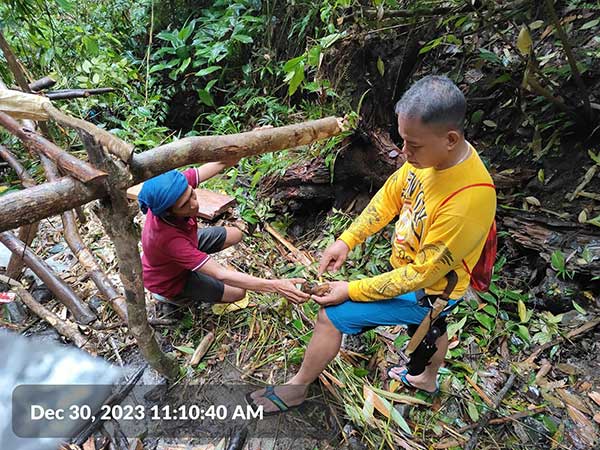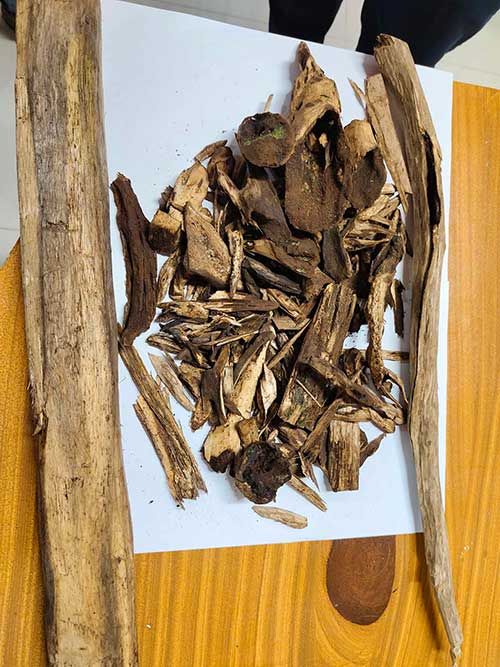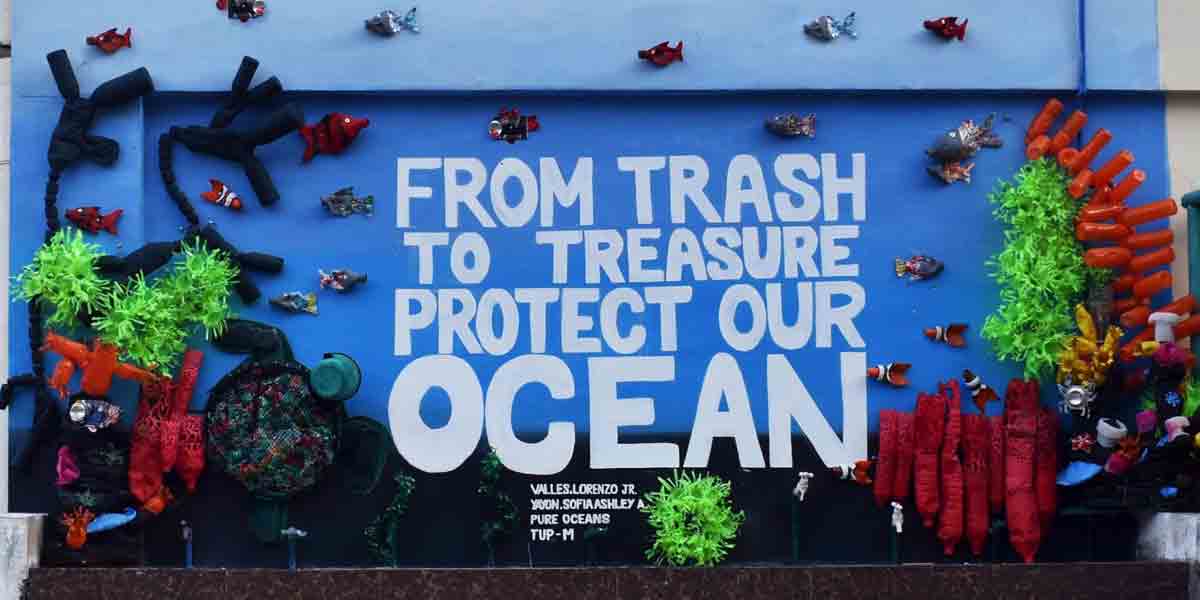Agarwood is considered as the highest valued forest product in the world because of its distinctive fragrance.
It is produced when Aquilaria tree species, locally known as lapnisan, was infected with mold called Phialophora parasitica.
The infection causes the heartwood of the trees to become moist and develop dark spots, producing a rich, fragrant resin.
This heartwood, considered as “Wood of the Gods” is quite rare in nature, but due to its high value, all varieties of Aquilaria trees where agarwood came from becomes threatened to exist in the wild.
The resinous wood was used as incense, for medicinal purposes, and because of its distinctive fragrance, the pure resin in distilled form, is used as an essential oil and perfume component.
The Department of Environment and Natural Resources (DENR) said that while propagation of agarwood-producing species like Aquilaria malaccensis is allowed, it is however highly regulated and collecting its seeds directly in the wild is prohibited.
DENR raised the point after the apprehension of agarwood in the municipality of Malinao, Aklan on December 29, 2023, after the four days of surveillance.
The Lawin Patrol Sector No. 3 of PENRO Aklan under the leadership of OIC-PENRO Engr. Jurlie Zubiaga and Team Leader Nina Fritz Cahilig together with the team from the Philippine National Police (PNP), officials of Brgy. Kinalangay Viejo apprehended 10 persons at Sitio Angeles and recovered 1.35 kgs. of agarwood with an estimated market value of Php216,000.
“We at the DENR, environment and balancing our ecosystem will always be our priority. We are here to protect and conserve our flora and fauna but how can we achieve those if there are still individuals who are patronizing illegal activities,” DENR 6 Regional Executive Director Livino B. Duran pointed out.
“Secure all necessary permits with any activities concerning our flora and fauna, and seek clarification regarding environmental related endeavors of other concerned stakeholders from the DENR,” RED Duran added.
Less than a month after, another apprehension was made on January 17, 2024 inside the Northwest Panay Peninsula Natural Park (NPPNP), specifically in the municipality of Nabas, Aklan.
The apprehension was done during the scheduled overnight foot patrol and wildlife monitoring of the nine (9) NPPNP Park Rangers.
An agarwood weighing 2.630kg with an estimated market value of 1,972,500 (750,000 per kilo) and other paraphernalia was apprehended from the poachers that was caught in the act by the NPPNP Park Rangers, but only one of them was arrested and the three individuals fled in the different areas.
The caught poacher was reported and jailed with the help of the 2nd Aklan Provincial Mobile Force Company headed by Lt. Colonel Donnel Regis and Nabas PNP.
The suspected poachers will be charged for violation of Presidential Decree (PD) 705 or Revised Forestry Code of the Philippines as amended, Republic Act (RA) 9147 or Wildlife Resources Conservation and Protection Act, and RA 11038 or the Expanded National Integrated Protected Area Systems (eNIPAS) Act.
Varieties of Aquilaria trees species are listed in Appendix II (species not necessarily threatened with extinction, but in which trade must be controlled to avoid utilization incompatible with their survival) by the Convention on International Trade in Endangered Species of Wild Fauna and Flora.
“After another apprehension here comes another. And the worst part, not all of the Aquilaria trees that were damaged by the poachers can surpass the infection,” Duran said.
“The DENR will not tolerate such activity! We will continue to protect our environment from these illegal activities. We deserve the ecological balance that we have right now, and our flora and fauna deserve peace in the wild.”
In the Philippines, one species of Aquilaria (A malaccencis lam) is categorized as Endangered and seven (7) species are listed as Vulnerable based on DENR Administrative Order No. 2017-11 (Updated National List of Threatened Philippine Plants and their Categories).
Generally, agarwood is a threatened plant species in the country and it is mandatory to identify the species in order to determine the fines and penalties associated with the violation committed in accordance with RA 9147. (DENR-6)




























